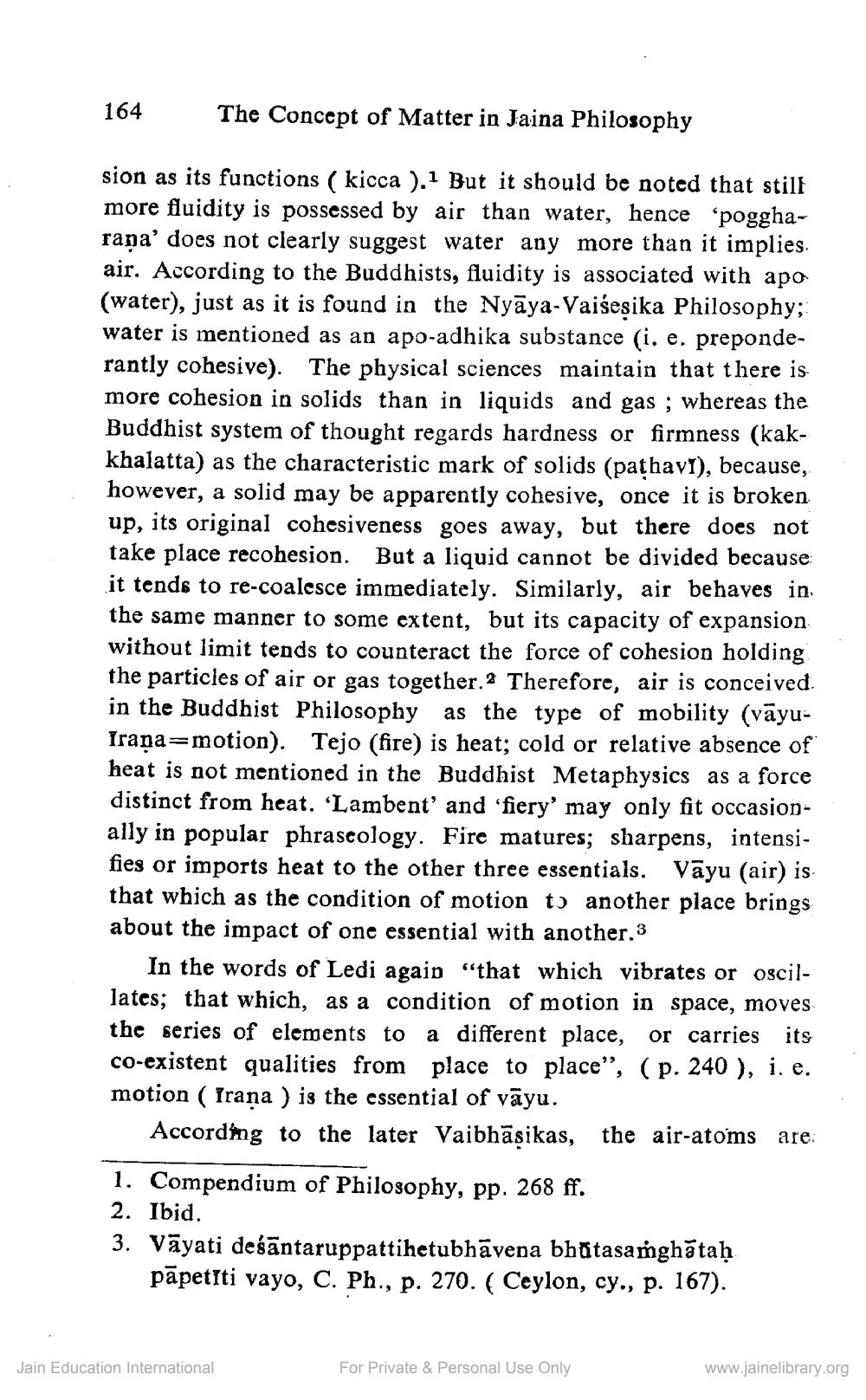________________
164
The Concept of Matter in Jaina Philosophy
sion as its functions ( kicca ).1 But it should be noted that still more fluidity is possessed by air than water, hence 'poggharapa' does not clearly suggest water any more than it implies. air. According to the Buddhists, fluidity is associated with apo (water), just as it is found in the Nyāya-Vaiseșika Philosophy; water is mentioned as an apo-adhika substance (i. e. preponderantly cohesive). The physical sciences maintain that there is more cohesion in solids than in liquids and gas ; whereas the Buddhist system of thought regards hardness or firmness (kakkhalatta) as the characteristic mark of solids (pathaví), because, however, a solid may be apparently cohesive, once it is broken up, its original cohesiveness goes away, but there does not take place recohesion. But a liquid cannot be divided because it tends to re-coalesce immediately. Similarly, air behaves in the same manner to some extent, but its capacity of expansion without limit tends to counteract the force of cohesion holding the particles of air or gas together.2 Therefore, air is conceived. in the Buddhist Philosophy as the type of mobility (vāyuIrana=motion). Tejo (fire) is heat; cold or relative absence of heat is not mentioned in the Buddhist Metaphysics as a force distinct from heat. 'Lambent' and 'fiery' may only fit occasionally in popular phrascology. Fire matures; sharpens, intensifies or imports heat to the other three essentials. Vāyu (air) is that which as the condition of motion to another place brings about the impact of one essential with another. 3
In the words of Ledi agaip “that which vibrates or oscillates, that which, as a condition of motion in space, moves the series of elements to a different place, or carries its co-existent qualities from place to place”, (p. 240 ), i. e. motion ( Irana ) is the essential of vāyu.
According to the later Vaibhāșikas, the air-atoms are 1. Compendium of Philosophy, pp. 268 ff. 2. Ibid. 3. Vāyati deśāntaruppattihetubhāvena bhůtasaṁghātaḥ
pāpetiti vayo, C. Ph., p. 270. ( Ceylon, cy., p. 167).
Jain Education International
For Private & Personal Use Only
www.jainelibrary.org




